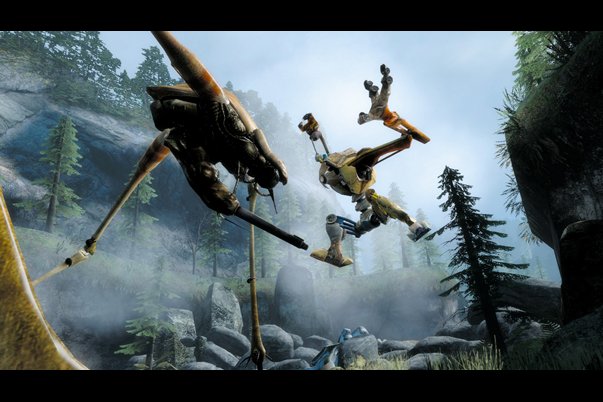Flash Gordon
Valve writer talks Half-Life and sci-fi
Having written sci-fi and horror novels such as Dad's Nuke, The Orchid Eater and The 37th Mandala, Marc Laidlaw joined Valve in 1997 during the development of the original Half-Life. He's a charming guy, and given the opportunity to speak on his specialist subject, he does so perceptively and at great length.

How is it that you've wound up working in the sci-fi medium instead of, say, writing political thrillers or tales of romance?
Laidlaw: I've always wanted to be a writer of the fantastic. My mom read to me from The Martian Chronicles and The Lord of the Rings; my dad sent me off to sleep with Poe's The Black Cat and The Tell-Tale Heart. I was more interested in writing horror than science fiction; when I tried to imagine anything with a sci-fi setting, I pictured boring spaceships with linoleum corridors (which is to say, Star Trek).
But in the late '70s and early '80s the market for horror was swamped to overflowing with Stephen King imitators (ignoring the fact that Stephen King was more than able to fill a swamp all on his own). The late James Turner, then editor of Arkham House, advised me that if I took some of that horror sensibility and applied it to sci-fi, I'd be likelier to come up with something original. This gave me a more personal angle on writing science fiction. My favorite sort of sci-fi is satirical, dystopian fiction, fairly bleak - a classic mode of sci-fi, but only marginally saleable.
Weekly digests, tales from the communities you love, and more


